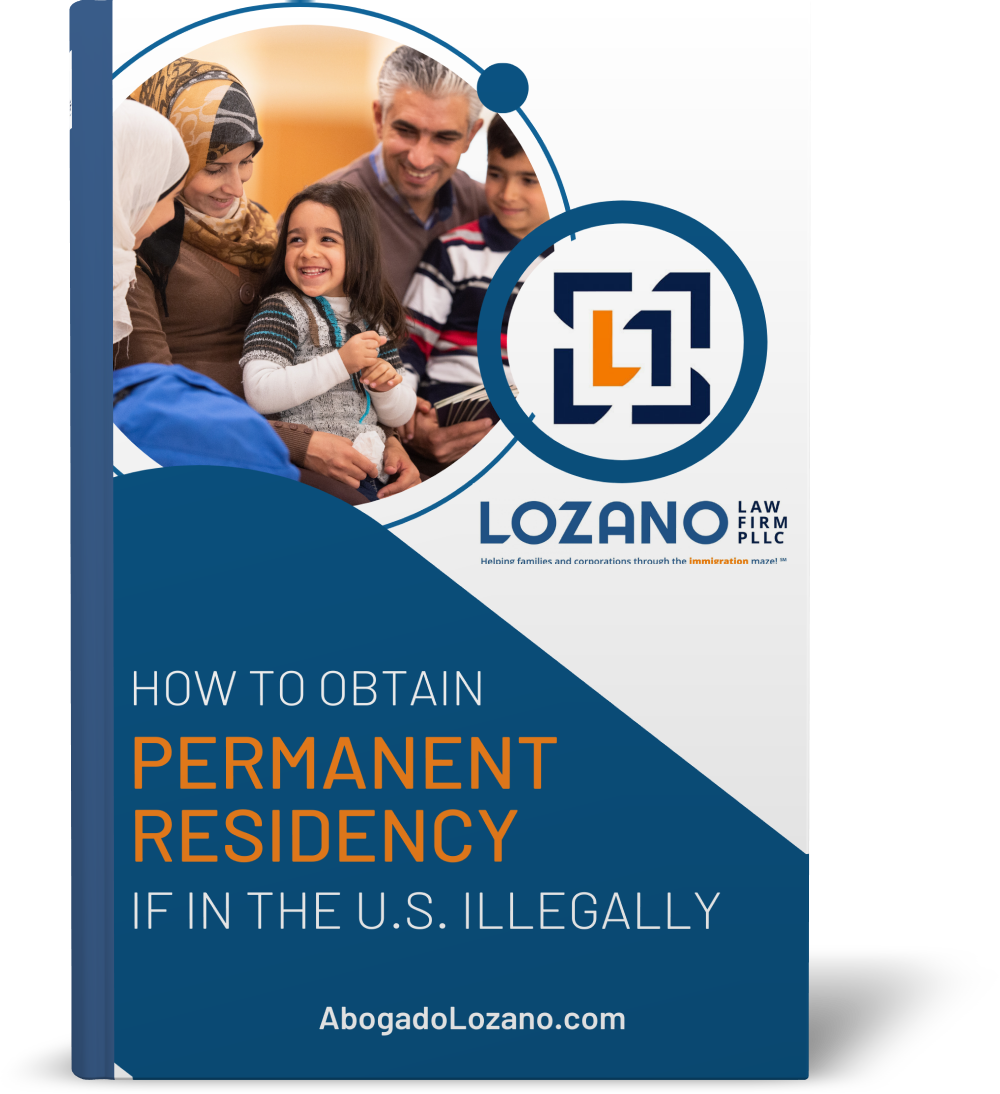If you are interested in obtaining U.S. citizenship, then a naturalization lawyer can definitely help you. Citizenship lawyers in Texas, for example, provide legal advice, assistance, and representation throughout the process. You can have peace of mind while working with them, knowing that your immigration affairs are in order. This article will discuss how to go through naturalization, its requirements, and other ways to become a U.S. citizen. Also, you will learn how an experienced attorney for immigration can help you become a legally recognized U.S. national. 
 You can qualify to become a U.S. citizen if you served honorably in the U.S. Armed Forces. At least one year during peacetime, or 180 days during hostilities, must have passed to qualify for this process. After completing their service, they can apply for naturalization and are exempt from some of the usual requirements, such as residency and physical presence on U.S. soil. They must still meet other criteria, such as good moral character and knowledge of English and U.S. civics knowledge. This path to becoming a U.S. national is available to enlisted personnel and commissioned officers and has existed since the Revolutionary War.
You can qualify to become a U.S. citizen if you served honorably in the U.S. Armed Forces. At least one year during peacetime, or 180 days during hostilities, must have passed to qualify for this process. After completing their service, they can apply for naturalization and are exempt from some of the usual requirements, such as residency and physical presence on U.S. soil. They must still meet other criteria, such as good moral character and knowledge of English and U.S. civics knowledge. This path to becoming a U.S. national is available to enlisted personnel and commissioned officers and has existed since the Revolutionary War.

What Is Naturalization?
U.S. naturalization is a process through which foreign-born individuals can become citizens of the United States. The process includes submitting an application, attending an interview, passing an English and civics test, and taking the Oath of Allegiance. Naturalization offers a pathway to enjoy the rights and privileges of U.S. citizenship.How To Qualify For Naturalization
If you want to become a naturalized citizen of the United States, you must meet the following requirements:- You are at least 18 years old when you apply.
- Have continuous residence in the country for at least five years, or three years if married to a U.S. citizen.
- Able to read, write, and speak basic English.
- You must show a basic understanding of U.S. history and government by passing the civics exam.
- You are of good moral character.
- Be willing to take the Oath of Allegiance to the United States.
General Steps To Naturalization
There are several general steps to follow for you to become a U.S. citizen. Receiving a Certificate of Naturalization marks the completion of the process.- Meet eligibility requirements. You must meet specific requirements to qualify for naturalization. This includes being at least 18 years old when filing, and being willing to take the Oath of Allegiance as a last requirement.
- File Form N-400. The next step is to file Form N-400, Application for Naturalization, with the USCIS. You provide your personal information, immigration history, and other details on the form.
- Attend biometrics appointment. Once you’ve filed the N-400 application, you must attend a biometrics appointment with USCIS. They will then scan your fingerprints, and signature, and take your photo.
- Attend a naturalization interview. After USCIS reviews the N-400 application and biometrics information, they will schedule you for an interview. A USCIS officer will review your application, ask questions about your background and eligibility, and administer an English and civics test.
- Receive decision on the application. USCIS will decide on the naturalization application after the interview. If the agency approves your application, you will receive a notice to take the Oath of Allegiance and become a U.S. citizen.
- Attend the Oath of Allegiance ceremony. The final step in the naturalization process is attending the Oath of Allegiance Ceremony. You will swear allegiance to the United States and receive a Certificate of Naturalization.
Other Ways To Gain U.S. Citizenship
Aside from naturalization, there are several ways to become a U.S. citizen, including birthright, derivative, adoption, military service, and marriage. A Texas immigration attorney, for example, can guide you through the process that suits your current situation.Citizenship Through Birth-Right
Becoming an American through birthright, also known as jus soli, means that if a person is born on U.S. soil, they are automatically a citizen. It applies regardless of the immigration status of the parents or nationality. The 14th Amendment to the U.S. Constitution guarantees this right, stating those naturalized or born in the United States and subject to its authority are citizens of the country. It means that a child born in the United States to foreign parents is a U.S. citizen and can enjoy all the benefits and rights, such as the ability to vote, work, and travel freely.Derivative Citizenship
Derivative refers to the automatic granting of nationality to foreign-born individuals whose parents are U.S. citizens. It is on the principle of “jus sanguinis,” or right of blood, which means inherited through one’s parents. For example, if children were born in another country from a U.S. citizen parent, they may be eligible for a derivative process. After establishing their eligibility, they qualify for a first-time U.S. passport.Citizenship Through Adoption
Becoming a U.S. citizen through adoption occurs when someone or a couple legally adopts a child born outside the country. The adoptive parents must follow a specific process to obtain a U.S. Visa for the child. Further, they must also prove they can provide financial support and demonstrate that the child will receive proper care and a stable home environment. Once the adoption is final and the child enters the United States, they automatically become U.S. citizens. The process can take several months to complete and may require assistance from an immigration lawyer or adoption agency.Citizenship By Military Service
 You can qualify to become a U.S. citizen if you served honorably in the U.S. Armed Forces. At least one year during peacetime, or 180 days during hostilities, must have passed to qualify for this process. After completing their service, they can apply for naturalization and are exempt from some of the usual requirements, such as residency and physical presence on U.S. soil. They must still meet other criteria, such as good moral character and knowledge of English and U.S. civics knowledge. This path to becoming a U.S. national is available to enlisted personnel and commissioned officers and has existed since the Revolutionary War.
You can qualify to become a U.S. citizen if you served honorably in the U.S. Armed Forces. At least one year during peacetime, or 180 days during hostilities, must have passed to qualify for this process. After completing their service, they can apply for naturalization and are exempt from some of the usual requirements, such as residency and physical presence on U.S. soil. They must still meet other criteria, such as good moral character and knowledge of English and U.S. civics knowledge. This path to becoming a U.S. national is available to enlisted personnel and commissioned officers and has existed since the Revolutionary War. Marriage-Based Citizenship
Nationality through marriage refers to becoming an American by marrying a U.S. citizen. Initially, the foreign national is invited to enter US soil through a Fiancé Visa. After marriage and if the foreign spouse meets specific requirements, they may be eligible to apply for a Green Card for permanent residency. After three years of permanent residence, the foreign spouse can apply for naturalization. However, the process can be complicated and requires various forms and documents. It is crucial to seek legal advice from a citizenship law firm to ensure a successful application process.Enjoy The Rights & Privileges Of A U.S. Citizen
If you only want to live and work in the United States, a permanent residency status will allow you to do that. You obtain a Green Card through a specific Visa category, such as employment-based or family-based Visas. However, understand that lawful permanent residency is not what the name implies because the length is within the government’s discretion. However, as a naturalized citizen in San Antonio TX, you can stay as long as you like while enjoying all the civil rights and benefits in the U.S. democracy. As a citizen, you can:- Vote and fully participate in government, including running for all state, federal and local offices (other than President and Vice President).
- Apply for jobs open only to U.S. citizens.
- Travel with the benefits and security that a U.S. passport provides.
- Bring over other family members faster than a lawful permanent resident can.
- If your children are born abroad, they will most likely be U.S. citizens through the derivative process.
Lozano Law Firm Helps You Become A U.S. National
Texas immigration lawyers at Lozano Law Firm can provide assistance and guidance throughout the application process. Some specific ways they can help you include:- Advise you on eligibility requirements: A lawyer can assess your eligibility by reviewing your immigration history, criminal record, and other factors.
- Assist you with the application: They can help you complete your application and ensure to include all the required documents.
- Accompany you during interviews: They can accompany you to your interview and provide legal representation. They must complete and sign Form G-28 (officially called the “Notice of Entry of Appearance as Attorney or Representative”)
- Resolve any issues that arise: Issues may arise during your application processes, such as a request for additional information or a denial of the application. Your lawyer can help resolve the issue and protect the individual’s rights when that happens.
- Guide you through test preparation: A lawyer can provide guidance and resources to help you prepare for the USCIS test.
















